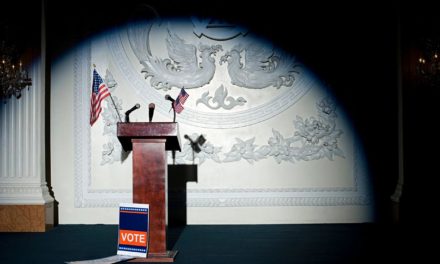Anytime you have to add a word to your spell-checker you can be sure you’re writing on dangerous ground. I had to do that in Word 18, when I started writing this blog and my spell-checker underlined it in red. Woke refers to awareness of issues about social and racial justice. It is sometimes used in the African-American Vernacular English expression, “stay woke.”
The word may have been first used by a Black American folk singer-songwriter known as “Lead Belly.” He used it in his 1938 song, “Scottsboro Boys.” The song put to music the tragic story of nine black teenagers accused of raping two white women, saying: “I advise everybody, be a little careful when they go along through there—best stay woke, keep their eyes open”.[1]
It is historically significant, currently important, and politically dangerous. The Conversation is a news organization dedicated to facts and evidence. It has covered both the term and the movement that it’s associated with—The Black Lives Movement. The Conversation’s news reporting puts the phrase and the movement in context. “[The term’s] popularity has diluted its meaning and the idea has been cynically applied to everything from soft drink to razors, attracting criticism if too liberally applied.”[2]
This blog is not about the word, its origins, or usage. It is about the ethical use of the term by writers. It is a good word when used in context but ill chosen when used for political or private gain.
David Brooks, the always-stimulating New York Times columnist, wrote a fine piece titled, “This Is How Wokeness Ends.” As is always the case with well-intentioned writing, his piece produced a small firestorm from both sides of the political aisle. It drew queries from voices eager to offer their two bits, and sometimes a two-dollar bill’s worth. It was maligned on the right, sparkled in the left, and left standing with one foot on either side of the aisle by centrists.
Mr. Brooks explained, “Conservatives are in despair because a hostile ideology — wokeness or social justice or critical race theory — is sweeping across America the way Bolshevism swept across the Russian Empire before the October Revolution in 1917.” Referring to another blog by a friend, Mr. Brooks reported, “It divides the world into good and evil based on crude racial categories. It has no faith in persuasion, or open discourse, but it shames and cancels anybody who challenges the official catechism.”
Ethical norms are often found in controversial reporting. Political columnists are vulnerable because to make their points, they use metaphor and historical context. So, by using the word, “conservatives” in the same sentence as “Bolshevism” will get you blasted on one side and uplifted on the other. That’s not ethics—just politics. In just these two references, ethical norms like judgment, transparency, and fellowship spring up like weeds after a rainstorm.
Mr. Brooks said, “The thing we call wokeness contains many elements. At its core is an honest and good faith effort to grapple with the legacies of racism. In 2021, this element of wokeness has produced more understanding, inclusion and racial progress than we’ve seen in over 50 years. This part of wokeness is great.” The right did not like that one bit.
He also said, “Wokeness gets weirder when it’s entangled in the perversities of our meritocracy, when it involves demonstrating one’s enlightenment by using language — “problematize,” “heteronormativity,” “cisgender,” “intersectionality” — inculcated in elite schools or with difficult texts.” The left was unhappy with this.
In closing, Mr. Brooks said, “As I say, there are (at least) two elements to wokeness. One focuses on concrete benefits for the disadvantaged — reparations, more diverse hiring, more equitable housing and economic policies. The other instigates savage word wars among the highly advantaged. If we can have more of the former and less of the latter, we’ll all be better off.” Did the center like this? Did they get it? Perhaps not—no one ever said the center leaned one way or the other. It is along for the political ride.
The ethics of wokeness is a work in process. The NY Times started counting the votes for and against wokeness and Mr. Brook’s column in its May 24, 2021 edition.[3] One reader said, “Making things right in society is particularly the moral responsibility of those who are privileged and wish to live in a more just society. I would go for the intellectual excesses of the “woke” any day if that brings about a more just America.”
Another said, “So it’s puzzling to see “woke” so quickly evolve to describe intellectuals talking down to others. The seemingly bad grammar is supposed to emphasize that the term comes from the streets, not the ivory tower.”
A third reader said, “I am normally a fan of David Brooks. But in this column he asserts that the use of such words as patriarchal, cisgender and intersectional are simply the privileged elite engaging in ‘savage word wars among the highly advantaged.’ This is the grousing of someone who is the direct beneficiary of a patriarchal world in which cisgender men can ‘other’ and placidly ignore transgender women like me and what we endure on a daily basis.” There you have it—three readers—three reactions—all posed in morality terms—all avoiding moral judgment. Therein lies the ethical norm that ought to apply to wokeness and other new words for old wounds. If what you say does not imply immoral conduct or ethical misconduct, then it passes ethical muster.
[1] Lead Belly. “Scottsboro Boys.” Smithsonian Folkways Recordings. 2 July 2015. See also, https://en.wikipedia.org/wiki/Woke
[2] Abas Mirzaei, Senior Lecturer, Branding, Macquarie University. “Where ‘Woke’ Came From and Why Marketers Should Think Twice Before Jumping On the Social Activism Bandwagon.” September 8. 2019. https://theconversation.com/where-woke-came-from-and-why-marketers-should-think-twice-before-jumping-on-the-social-activism-bandwagon-122713
[3] https://www.nytimes.com/2021/05/24/opinion/letters/wokeness.html

I am an author and a part-time lawyer with a focus on ethics and professional discipline. I teach creative writing and ethics to law students at Arizona State University. Read my bio.
If you have an important story you want told, you can commission me to write it for you. Learn how.






 I am an author and a part-time lawyer with a focus on ethics and professional discipline. I teach creative writing and ethics to law students at Arizona State University.
I am an author and a part-time lawyer with a focus on ethics and professional discipline. I teach creative writing and ethics to law students at Arizona State University.  My latest novel is Hide & Be.
My latest novel is Hide & Be.  If you have an important story you want told, you can commission me to write it for you.
If you have an important story you want told, you can commission me to write it for you.